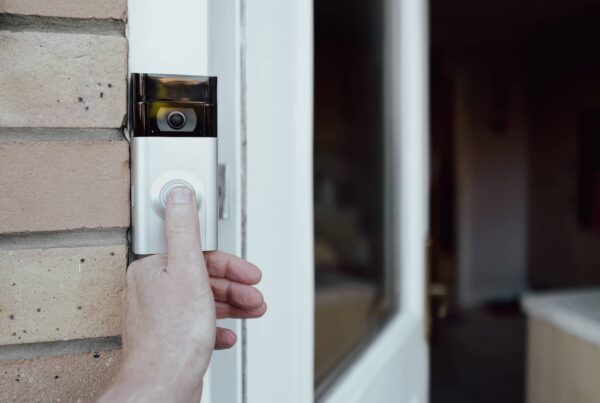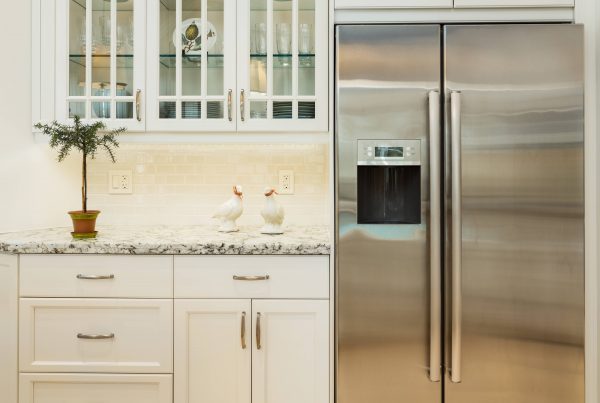
Have you ever noticed the lights in your house flickering and wondered what’s going on beyond what you can see? It’s often not just an annoying quirk—flickering lights can be a sign of bigger electrical issues that need your attention.
Ignoring the problem could lead to more serious and costly repairs down the line. So, this is your guide to eight common reasons for flickering lights and what you can do about it. From simple fixes to more complex electrical concerns, we’ll get you on the track to understanding the causes and solutions.
Loose or Faulty Bulbs
One of the most common causes of flickering lights is a loose or faulty bulb. When a bulb isn’t securely screwed into its socket, it can cause intermittent connections that lead to flickering. Luckily, this is usually a simple fix!
- Check the bulb by turning off the light and allowing the bulb to cool down. Carefully unscrew the bulb and then screw it back in, making sure it’s securely in place. Then, turn the light back on to see if the flickering has stopped.
- Inspect the bulb if securing the bulb doesn’t solve the problem, looking for broken filaments or dark spots that indicate the bulb might have burnt out. If the bulb appears damaged, replacing it with a new one is the best course of action.
- Try a different bulb that you know works well in another fixture. If the flickering stops, it’s clear that the original bulb was the issue.

Overloaded Circuits
Overloaded circuits are another common culprit behind flickering lights. When too many appliances are connected to a single circuit, it can strain your electrical system and cause lights to flicker.
Identify the Problem Circuit
Firstly, look at what’s connected to the same circuit as the flickering lights. Commonly overloaded circuits include those with multiple high-wattage appliances such as microwaves, refrigerators, or air conditioners.
Reduce the Load
Unplug some of the appliances or devices connected to the circuit to see if the flickering stops. If the lights stabilize, you’ve likely found the problem. Consider redistributing your electrical load more evenly across different circuits.
Upgrade the System
If overloaded circuits are a frequent problem, it might be time to upgrade your home’s electrical system. Consult a licensed electrician to discuss adding more circuits or upgrading your electrical panel to better handle your household’s power needs.
Electrical Connections
Secure electrical connections are crucial for a stable lighting system. Loose wiring or poor connections can cause flickering lights and even pose a fire hazard.
- Inspect Wiring: Turn off the power to the affected area and check the wiring connections in your light fixtures and switches. Look for loose or frayed wires that might need tightening or replacing.
- Secure Connections: Ensure all wire nuts and connectors are properly secured. Tighten any loose connections you find and replace any damaged wiring.
- Professional Inspection: If you’re uncomfortable working with electrical wiring, hire a professional electrician to inspect and secure your connections.
Faulty Switches
A faulty light switch can also cause your lights to flicker. Over time, switches can wear out or become damaged, leading to poor connections.
Test and Replace
Turn the switch on and off several times to see if the flickering corresponds with the switch movement. If it does, the switch might be the problem.
If the switch is faulty, it’s usually best to replace it. Turn off the power to the switch at the circuit breaker, remove the switch plate, and replace the switch with a new one. Be sure to follow proper safety procedures or hire an electrician if you’re unsure.
Problems with the Main Electrical Panel
Issues with your home’s main electrical panel can lead to flickering lights throughout the house.
- Inspect the Panel:Check for any signs of damage, such as scorch marks, loose wires, or tripped breakers. These can indicate a problem with the panel.
- Tighten Connections:Ensure all connections in the panel are tight. Loose connections can cause intermittent power supply and flickering lights.
- Professional Maintenance:It’s often best to have a licensed electrician inspect and maintain your electrical panel regularly. They can identify and fix issues before they become major problems.
Voltage Fluctuations
Voltage fluctuations can cause your lights to flicker, often due to issues with your utility provider or within your home. You can use a multimeter to check the voltage levels in your home. If you notice significant fluctuations, it might be time to investigate further.
Consider installing a whole-house surge protector or voltage stabilizer to manage and stabilize voltage levels, protecting your appliances. If you suspect the voltage fluctuations are due to issues outside your home, contact your utility provider! They can check for problems in your area and work on a solution.
External Factors
External factors like weather conditions or issues with the utility company can cause lights to flicker.
- Weather Conditions: Heavy winds, storms, or other extreme weather can affect power lines and cause flickering lights. Wait for the weather to clear and see if the flickering stops.
- Utility Company Issues: Sometimes, the problem lies with your utility provider. If you notice widespread flickering or power outages in your area, contact your provider to report the issue and get updates.
- Backup Solutions: Consider installing a backup power system, like a generator, to maintain a stable power supply during utility issues or extreme weather.

Other Recommended Maintenance
Schedule regular inspections with a licensed electrician to check your wiring, circuits, and electrical panel. These inspections can help identify potential problems before they escalate, ensuring your electrical system remains safe and efficient.
If your home has an older electrical system, consider upgrading to handle modern power demands. Upgrading can improve overall electrical stability and safety, reducing the likelihood of flickering lights and other issues.
Finally, using high-quality bulbs, switches, and other electrical components is crucial. Cheap or low-quality parts are more likely to fail, leading to flickering lights and other problems.
When to Call a Professional
- Persistent Flickering: If you’ve tried all the basic fixes and lights in your house are still flickering, it’s time to call a professional. They can diagnose and fix more complex electrical problems that may not be apparent.
- Safety Concerns: Signs of electrical hazards, such as burning smells, scorch marks, or frequent circuit breaker trips, indicate serious issues. Seek professional help immediately to prevent potential fire hazards and ensure safety.
- Major Electrical Work: For major electrical work, such as upgrading your electrical panel or rewiring your home, always hire a licensed electrician. This ensures the job is done safely and correctly, complying with all necessary regulations and standards.
Conclusion
Flickering lights in the house can be a sign of various electrical issues, from simple fixes like tightening a bulb to more complex, potentially dangerous issues. With an understanding of common problems, can keep your home’s electrical running smoothly and safely.
If you’re dealing with persistent flickering lights or any other electrical concerns in NH, MA, and ME, don’t hesitate to reach out to Alpha Building Inspections.



